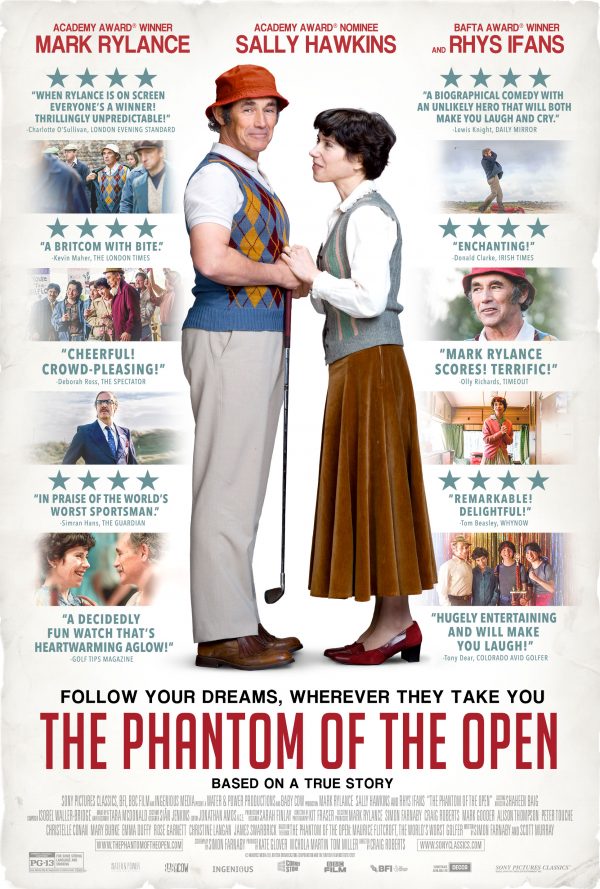
“The Phantom of the Open” (2021 production, 2022 release). Cast: Mark Rylance, Sally Hawkins, Rhys Ifans, Jake Davies, Christian Lees, Jonah Lees, Mark Lewis Jones, Johann Myers, Steve Oram, Tim Steed, Ash Tandon, Dick Nelson, Nigel Betts, Neil Edmond, Marc Bosch, Mike Capozzola, Tommy Fallon. Director: Craig Roberts. Screenplay: Simon Farnaby. Book: Scott Murray and Simon Farnaby, The Phantom of the Open: Maurice Flitcroft, The World’s Worst Golfer (2011). Web site. Trailer.
It seems like just about everybody is willing to cheer for a lovable loser. We know that these challenged individuals don’t stand a chance of coming out on top in their respective pursuits, but we pull for them anyway, hoping that their efforts will pay off in a modicum of respectability. At the very least, we admire them for their gumption, their willingness to try, even in the face of heavily stacked odds. That’s probably because we can see some of ourselves in them, looking up to them for their commitment to attempt something that we might not be able to bring ourselves to do. Such are the sentiments prompted by the new fact-based comedy, “The Phantom of the Open.”
When it comes to those who’ve achieved celebrity cult status for their magnificent gaffes, the names of filmmaker Ed Wood and British ski jumper Eddie the Eagle readily come to mind. And now, thanks to this hilarious new release, we can add golfer Maurice Flitcroft to that list. The film follows the story of this supremely optimistic underdog (Mark Rylance) in pursuing his dream of becoming a professional golfer after years of working as a crane operator in a shipyard in the English port of Barrow.
So what’s Maurice’s reason for the change? Given the UK government’s plan to nationalize businesses like this in the 1970s, the middle-aged blue collar worker faces the prospect of losing his job due to downsizing and consolidation, despite the fact that his own stepson, Michael (Jake Davies), is an executive in the company. When word of this possibility first emerges, Maurice muses over the idea with his co-workers, Cliff (Mark Lewis Jones) and Willie (Johann Myers), both of whom are somewhat anxious about what the future might hold. But, being the optimist that he is, Maurice is largely unconcerned, knowing that he’ll land on his feet, even if he’s not sure how or where. However, that all changes one night while watching television.
While switching channels, Maurice lands on televised coverage of the prestigious British Open golf tournament and is instantly captivated. Having never played a round of the game in his life, he’s utterly taken with what he sees, and he thus knows that’s what he’s destined to do. All he has to do now is figure out how.
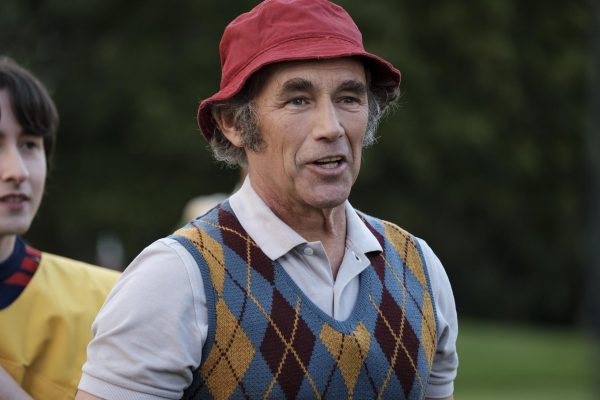
Starting from scratch, having never picked up a club, visited a golf course or learned any of the rules of the game, he proceeds in earnest to investigate what it takes to participate in the 1976 Open. Considering that he’s not anywhere near to being even at the amateur level, his questions about this undertaking are laughable, even to those who know little to nothing about the sport. It’s as if he’s going about things blindly, but that doesn’t matter to him. His innocence and blissful naïvete are enough to keep him moving forward.
Fortunately, Maurice has his share of help in this undertaking. His adoring wife, Jean (Sally Hawkins), and twin sons, Gene (Christian Lees) and James (Jonah Lees), are tremendous sources of support. His friend Cliff supplies him with the equipment and suitably stylish clothing he’ll need to compete. And, before long, he receives the unexpected blessing of Open officials, who approve his application to compete.
So how does someone like Maurice qualify for such an exclusive competition? He can thank condescending tournament officials Keith Mackenzie (Rhys Ifans) and John Pegg (Tim Steed) for green-lighting his application. They’re so full of themselves and the elitist reputation of their sport that they can’t imagine anyone having the kind of moxie Maurice possesses to apply for participation in something for which he’s clearly unqualified. They fail to check his background, never bothering to see what golf clubs he belongs to, what tournaments he has played in or what kind of track record he has amassed as an alleged professional. It’s astounding that the amateur managed to get this far with the Open, given that he was previously denied access by his local golf course to play there just for practice.
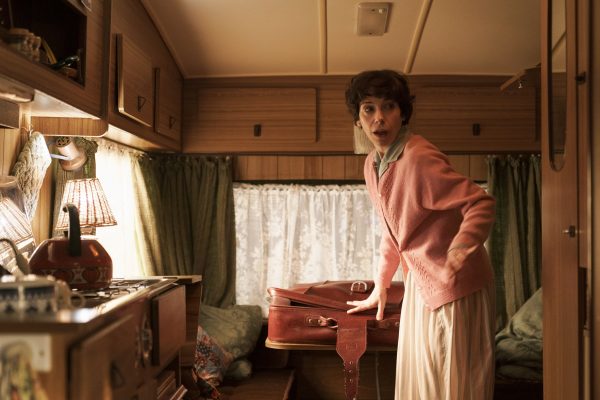
When the time comes for the ill-prepared Mr. Flitcroft to take to the green to play in an Open qualifying round, it quickly becomes apparent he ’s out of his league as Messrs. Mackenzie and Pegg look on perplexed and aghast. Who is this person, and how did he get to where he is now? It’s not long before the officials realize they’ve had heaps of egg piled on their faces, and they try to encourage Maurice to withdraw only partway through his round, a request he politely refuses. He keeps playing, eventually tallying a record-breaking score of 121 by the time he finishes.
While most might find such an outlandish tally utterly embarrassing, Maurice matter-of-factly takes it as a cue that he needs more practice to play better in future outings. But he isn’t the only one to take matters in stride. Broadcasters and golf enthusiasts see Maurice as a lovable underdog, one who has competed against the odds and did the best he could, despite his horrendous performance on the links. One could also argue that they probably took some perverse glee in seeing the snooty officials so roundly humiliated for their arrogant stupidity. Indeed, comeuppance can be a bitch.
Needless to say, Mackenzie and Pegg are outraged and take steps to prevent Maurice from being able to play on any golf course in Britain ever again. Such a step, they believe, would not only prevent Maurice from trying to surreptitiously launch a bid for playing in a future Open, but it would also help to overtly squelch any memories of his mortifying “prank” in their revered and beloved sport (even though that’s not at all how Maurice viewed it).
While the newcomer could laugh off the overblown bluster of the Open officials, others closer to home shared in that embarrassment, creating feelings that subsequently engendered ill will in the Flitcroft household. This is most notably apparent with Michael, who fears that his dad’s humiliating public actions would harm his own reputation at work, particularly in eyes of his boss, Gerald Hopkins (Steve Oram). Given Maurice’s long and well-known tenure with the shipyard, Michael is afraid that his father’s golfing antics would reflect badly on him and the company, thereby putting his own job in jeopardy. This strains relations between father and son, but Maurice vows to keep trying his hand at his new vocation, despite the challenges created by golfing officials. He enjoys what he’s doing, and he doesn’t think it fair that others are trying to stop him or shame him. He looks for ways to slip in under the radar to partake in future competitions, knowing that, if others criticize him, he has strong public support to back him up.
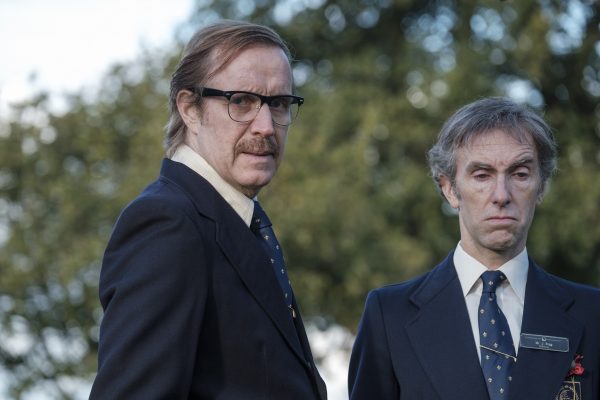
Thus the legend of Maurice Flitcroft, the world’s worst golfer, is born. He becomes a cult hero with an adoring following. And he serves as an inspiring symbol for all those who feel undeterred in following their dreams. So what if he doesn’t win any trophies or make a mark on any scorecards? He loves what he does, and he won’t let circumstances impede his efforts to try. And who can find fault with that?
Maurice certainly set quite an example for us all. Once he made up his mind, he was committed to following through on his dream, something that many of us only (pardon the pun) “dream” about and never act on. His story is especially inspiring in light of the fact that his aspiration was so ambitious. Indeed, he set his sights on something grand, an objective almost comparable to, say, a senior lacking spaceflight experience suddenly wanting to become an astronaut. And he made it happen – maybe not the way he thought it would work out, but he brought it into being nevertheless.
That’s because Maurice believed in himself and the fulfillment of his goal. Those beliefs are a powerful impetus, too, for they drive the manifestation of the reality we experience, thanks to the conscious creation process, the philosophy that maintains we draw on these intangible resources in materializing our existence. It’s not clear whether Maurice had ever heard of this school of thought, but he certainly was well versed in its principles and application, as evidenced by how his story unfolded. His “Never Say Die” attitude provided the basis for his pursuit of this objective, and he remained true to it throughout the venture’s realization.
In making this happen, Maurice drew upon a number of beliefs that supported this goal. For instance, he overcame any apprehensions that stood in his way. He sought to participate in the Open as though it were something available to everyone; after all, the tournament was called the “Open,” which certainly implied inclusivity rather than the blatantly intrinsic exclusivity characterizing the field of competitors and means for qualification. Fearlessly forging ahead like this came naturally to him, and he didn’t hesitate to draw upon it, first in his beliefs and subsequently in his actions.
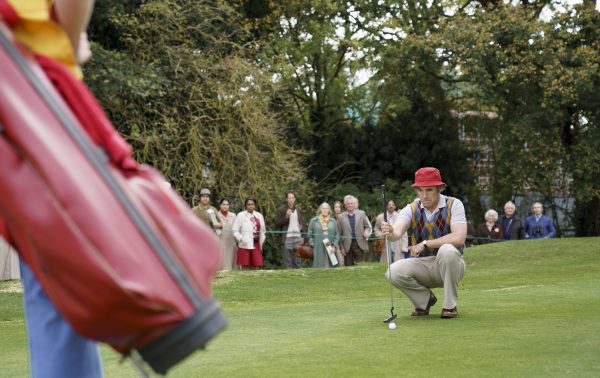
In addition, Maurice looked past any limitations that might be holding him back. Whenever a roadblock arose, he resourcefully looked for a workaround, a creative, unexpected solution to remove the impediment and enable him to proceed. These solutions were often anything but conventional, but sometimes such inventive measures were just what he needed to overcome the problems at hand. By thwarting those who tried to hold him back, he found the unobstructed paths that allowed him to continue to move forward.
Taken collectively, these beliefs provided Maurice with the persistence he needed to succeed, and that’s important given that there’s perhaps no better quality to define the character of the underdog. By remaining committed to striving, Maurice was able to follow his dream and make it real. And, when someone under these circumstances manages to achieve a sought-after goal, there’s often a strong natural tendency for followers to rejoice at that success, even if it’s not perfect. Recognition of the effort provides its own laurels, and both fans and participants can rejoice in such accomplishments.
Such scenarios frequently inspire others to follow suit. That’s apparent in the efforts of Maurice’s twin sons, who seek to become champion professional disco dancers. They look up to their dad’s aspirations and want to attain the kind of success that he has (well, maybe a little better given their talent and experience). They’re solidly bought in to the idea of pursuing their dreams, no matter how frivolous they might be viewed by others (such as their stepbrother Michael, who tends to look down on them the same way he does with their father). No matter how well they ultimately perform, however, they at least have a good example to follow.
We could learn a lot from the experiences of the Flitcroft family. They show us what we should do when we have a cherished dream that we want to fulfill. They inspire us to reach for our own greatness. And they help us understand that there’s no stopping us when we believe in ourselves and remain committed to our objectives. Who thought we could learn so much from a horrible golfer and a pair of disco dancers?
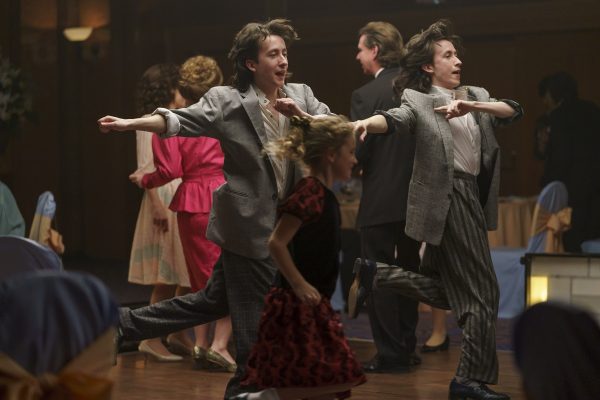
Off-hand notoriety may not seem like something someone would aspire to, yet Maurice’s efforts nevertheless catapulted him to the top of the sports pages at the time and made him a surprise living legend. And, through it all, he managed to hold on to his soft-spoken, unassuming attitude, maintaining always that it’s better to try and fail than to never try at all. Director Craig Roberts’s sweet, charming, whimsically funny tale delights from start to finish, especially in the picture’s second half, in large part thanks to the fine performances of Rylance, Hawkins and Ifans. What’s more, there’s no need to worry about a lack of knowledge about golf, as this is more of a story about a determined underdog who just happens to be a golfer than one requiring an intimate familiarity with the particulars of the sport. Admittedly, this offering could be a little better paced in the opening hour, the overdone soundtrack could stand to be toned down somewhat, and several fantasy sequences and transition bridges could have been handled more effectively. But those are small criticisms in light of everything else that the picture gets right. Indeed, how refreshing it is for this year’s summer movie season to finally produce something truly worth seeing! So tee up and give this one a shot – you won’t regret it. The film is currently playing theatrically in select cities.
We all probably have a little bit of Maurice Flitcroft in us. But how many of us actually have the nerve to let it out and put it on display? We may feel intimidated by the prospect or even embarrassed at the notion of failure. But, if such endeavors are ultimately not to be taken seriously, why not cut loose and see what happens? We could be pleasantly surprised. And, if not, at least we’ve made the attempt to find out and maybe have a little fun along the way. An old saying maintains that we should “dance like nobody’s watching.” Maurice didn’t seem to care about what spectators thought, but, for being willing to make the effort, he still got noticed anyway.
Good for him.
Copyright © 2022, by Brent Marchant. All rights reserved.

No comments:
Post a Comment